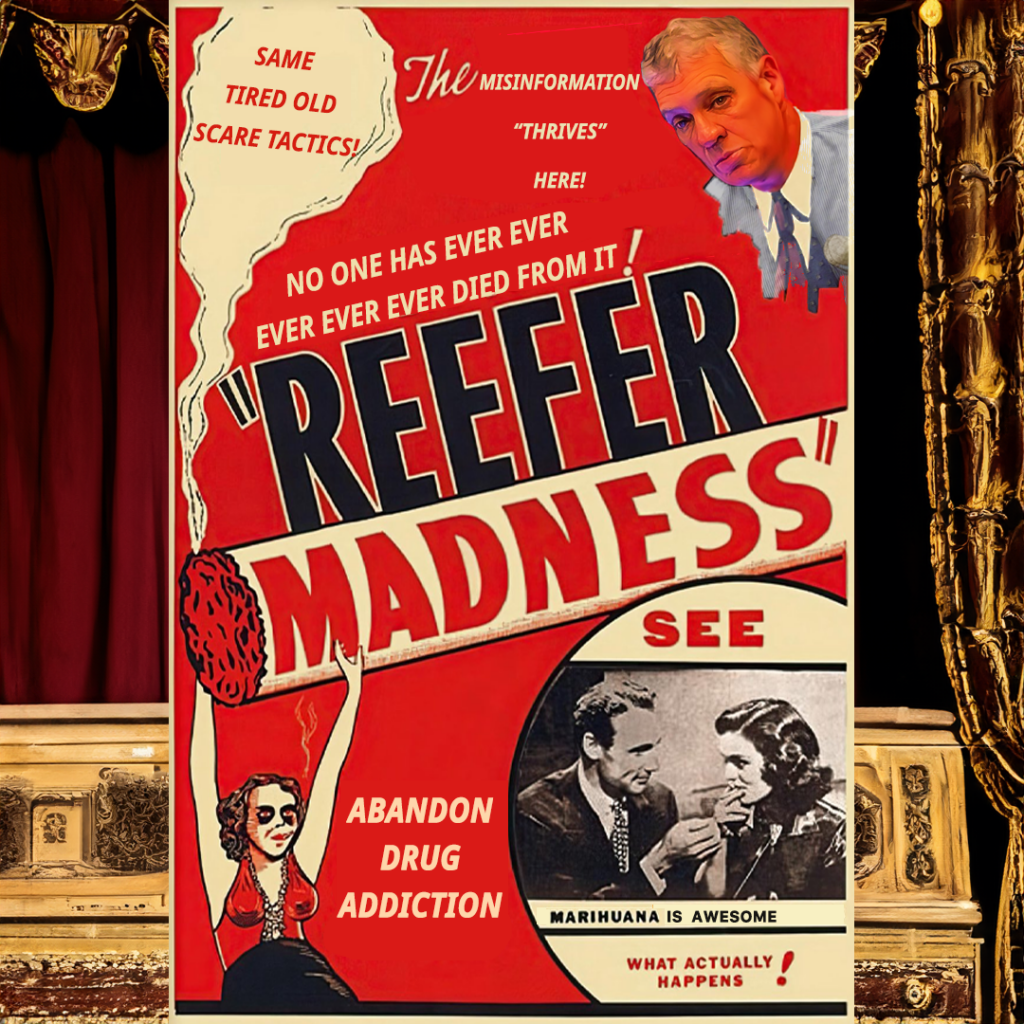The evolving debate around marijuana in the United States has taken another contentious turn with the announcement of Dave Weldon, a former Florida congressman, as President-elect Trump’s pick to lead the Centers for Disease Control and Prevention (CDC). Known for his staunch opposition to cannabis, Weldon has characterized marijuana as a gateway drug and dismissed its medical applications as “lunacy.” His views, steeped in outdated rhetoric, raise concerns about the future of cannabis policy and public health under his leadership.
This article unpacks Weldon’s statements, examines the broader implications of his appointment, and highlights the disconnect between his positions and the current scientific understanding of cannabis.
Dave Weldon’s Anti-Cannabis Stance: A Closer Look
Gateway Drug Rhetoric
Weldon’s assertion that marijuana serves as a gateway to harder drugs harkens back to discredited theories popularized during the War on Drugs. This perspective was used to justify harsh penalties and mass incarceration for cannabis users, disproportionately impacting marginalized communities. However, decades of research have undermined the gateway drug narrative, showing that cannabis use does not causally lead to the consumption of more dangerous substances.
Dismissing Medical Marijuana
Perhaps more troubling is Weldon’s outright rejection of cannabis’s medical value, labeling its use for therapeutic purposes as “lunacy.” This stance ignores robust evidence supporting marijuana’s efficacy in treating conditions like chronic pain, epilepsy, and chemotherapy-induced nausea. It also disregards the experiences of millions of patients who rely on cannabis for relief.
The Science Behind Cannabis: A Counter to Weldon’s Claims
Medical Evidence
Cannabis is no longer a fringe therapy. The FDA has approved cannabis-derived medications like Epidiolex for epilepsy, while clinical studies continue to demonstrate its benefits for managing pain, PTSD, and neurodegenerative diseases. These findings challenge Weldon’s dismissal of cannabis as a viable medical option.
The Gateway Theory Debunked
Contrary to Weldon’s claims, research consistently shows no direct causal link between cannabis use and progression to harder drugs. A 2017 report from the National Academy of Sciences concluded that socioeconomic and environmental factors play a more significant role in substance use patterns.
Data from Legal States
In states with legalized cannabis, studies have found no substantial increase in youth usage or addiction rates. Instead, data suggests potential public health benefits, such as a decrease in opioid overdose deaths and safer alternatives to black market products.
The Implications of Weldon’s Appointment
A Step Backward for Science-Based Policy
As head of the CDC, Weldon’s influence on public health policy could have far-reaching consequences. His anti-cannabis stance risks stalling progress on research and reinforcing stigma, potentially hindering access to cannabis for patients in need.
Mismatch with Public Opinion
Weldon’s views stand in stark contrast to public sentiment. Over two-thirds of Americans support marijuana legalization, and bipartisan efforts to advance cannabis reform are gaining traction. Weldon’s appointment could alienate a significant portion of the electorate and policymakers advocating for change.
Regulatory and Research Challenges
The federal government’s continued classification of cannabis as a Schedule I drug remains a major obstacle to research and regulation. Weldon’s appointment signals that the federal approach to marijuana may remain rooted in outdated ideologies, creating further barriers for scientists, healthcare providers, and the burgeoning cannabis industry.
The Broader Context: Trump’s Administration and Cannabis Policy
Trump’s administration has sent mixed signals on cannabis. While some officials have taken a hands-off approach to state legalization efforts, others, like former Attorney General Jeff Sessions, have aggressively opposed marijuana reform. Weldon’s appointment as CDC director could signify a renewed effort to undermine legalization and perpetuate anti-cannabis narratives.
Moving Forward: A Call for Evidence-Based Leadership
The Need for Progress
Marijuana policy should be guided by science, not ideology. Weldon’s appointment underscores the urgent need for policymakers and public health leaders who prioritize evidence-based approaches over outdated myths.
Public Advocacy
Advocacy groups, medical professionals, and cannabis reform organizations must redouble their efforts to educate the public and push back against regressive policies. The momentum for cannabis legalization and medical research should not be derailed by political appointments.
Dave Weldon’s appointment as CDC director represents a potential setback for marijuana policy and public health. His views on cannabis ignore decades of scientific progress and fail to align with the needs and perspectives of patients, researchers, and the broader public.
As the nation moves closer to federal legalization, it is critical that leaders in public health reflect a commitment to science and compassion. Weldon’s stance on cannabis risks perpetuating stigma and misinformation at a time when the country can least afford it.

***
Trap Culture is the ultimate destination for cannabis enthusiasts who want to experience the best of Arizona’s cannabis culture. Whether you are looking for the hottest cannabis-friendly events, the latest news on cannabis legalization, trends in the industry and exclusive, limited-edition products from the top brands in the market, Trap Culture has you covered. Visit our website to learn more about our events, our blog, and our store. Follow us on social media to stay updated on the latest news and promotions. Join the Trap Culture family and experience the most immersive and engaging social cannabis events in Arizona.
Follow us on social media





